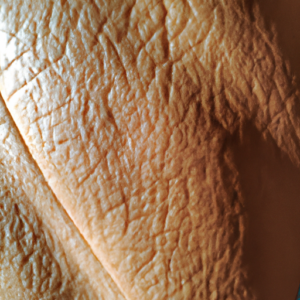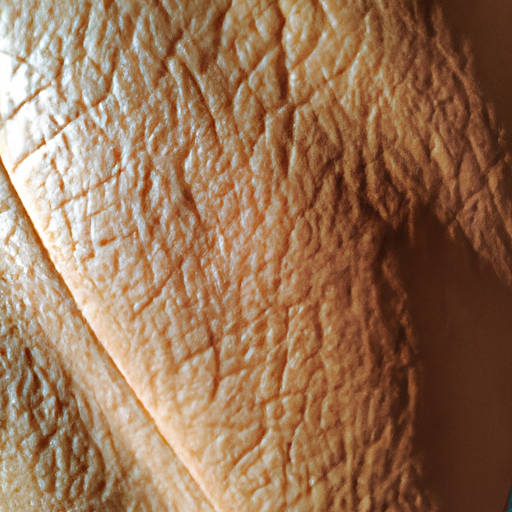Back Acne Scars: A Battle Worth Fighting
Hey there, fellow acne-sufferer. I’m sure you are as fed up with back acne scars as I am. Dealing with acne on your back is bad enough, and the scars they leave behind can be frustrating to say the least. But don’t worry, there are treatment options available to help you tackle this issue and achieve smoother, clearer skin on your back.
So, what exactly are back acne scars? Well, they’re those stubborn marks left behind after acne on your back has healed. They can range from pink or red to brown or black depending on your skin type and the severity of the acne. These scars can make you feel self-conscious, especially when wearing clothing that may reveal them.
Luckily, there are a variety of treatment options available to help fade back acne scars and improve the overall appearance of your skin. From topical treatments like retinoids and alpha hydroxy acids to more advanced procedures like laser resurfacing, chemical peels, and microdermabrasion, we’ll explore all of your options so that you can find the one that best fits your needs and budget.
Causes of Back Acne Scars: Why Does It Happen?
Uh-oh, back acne scars? I’ve been there. It can be frustrating and uncomfortable, but there are reasons why it happens. The main cause of back acne scars is poor hygiene. Sweat and oil accumulate on your skin, creating an environment for bacteria to grow. This can lead to inflammation and infection, causing acne and eventually, scars. So, make sure to regularly cleanse your skin.
Another cause is the improper use of products. Using harsh chemicals or excessively scrubbing can strip away your skin’s natural oils, leading to dryness and irritation. This can also cause acne and scars. Always read the label and know what you’re putting on your skin.

Hormonal imbalances can also contribute to back acne and scars. Hormones, specifically androgens, can increase oil production. This leads to clogged pores and acne. Hormonal fluctuation during puberty, pregnancy, or menstrual cycle can also trigger acne. Controlling hormones is tricky, but a dermatologist can prescribe medication to help manage it.
<h2>Treating Back Acne Scars: Here’s What to Do</h2>
Let’s talk about treatments for back acne scars. I know firsthand how frustrating it can be to deal with these pesky scars, and how hard it is to find the right option that works best for you. Fortunately, there are many options available for treating back acne scars, both topical and non-topical.
One popular option is using topical treatments such as retinoids and alpha hydroxy acids (AHAs). Retinoids work by increasing skin cell turnover and promoting collagen production, which in turn improves skin texture and reduces the appearance of scars. AHAs, on the other hand, work by exfoliating the skin’s surface and promoting cell renewal, which also reduces the appearance of scars. However, it’s important to note that these treatments can take some time to produce results, so patience is key.
Another option is laser resurfacing, which involves using a laser to remove the top layer of skin and stimulate collagen production. This treatment can be quite effective, but it can also be expensive and may require downtime for recovery. Similarly, chemical peels and microdermabrasion are also options that can help improve the appearance of back acne scars.
While these treatments can be effective, prevention is always the best approach. Regularly cleansing your skin with gentle products, avoiding popping pimples, and moisturizing your skin can help prevent new scars from forming. Remember, finding the right treatment for your back acne scars may require some trial and error, but with persistence and patience, you can achieve smoother, clearer skin.
How to Keep Back Acne Scars from Coming Back?
Hey, acne sufferers! Don’t let back acne scars bring you down! Here are some prevention tips that can help you keep acne marks from haunting you forever.
1. Regularly Cleanse Skin:
Cleansing your skin regularly prevents dirt and sweat from building up inside your pores, causing acne scars. Use a mild cleanser to wash your back gently. Also, avoid rough scrubbing as it can damage your skin and even make the scars worse.
2. Avoid Popping Pimples:
It is so tempting to pop a pimple, but don’t do it! Picking at your acne can expose your skin to bacteria and cause inflammation that worsens the scar. If you need to reduce the redness and swelling of a pimple, use a spot treatment instead of squeezing it.
3. Moisturize Skin:
Keeping your skin properly moisturized can help minimize the likelihood of scars. If your skin is too dry, it can decrease its ability to heal and lead to more acne scars. Look for a moisturizer that is non-comedogenic and oil-free to avoid clogging your pores.
4. Consider Light Therapy:
Try using a blue light therapy device, which can reduce inflammation and kill acne-causing bacteria. These devices apply a specific kind of low-level energy to the surface of your skin that doesn’t cause any harm to your skin but helps to kill bacteria.
5. Dress for Success:
Avoid clothing that is too tight to the skin, as it can restrict airflow, trap sweat and sebum, and cause blockages in the pores. Use breathable clothes made of moisture-wicking fabrics to keep sweat off your skin and help minimize scarring.
6. Diet Matters:
Eating a healthy diet rich in nutrient-dense foods, such as fruits, vegetables, whole grains, and lean protein, is essential for keeping your skin healthy. Eating greasy and sugary foods can cause your body to produce more sebum, which can lead to acne breakouts and scarring.
These tips can help you prevent back acne scars, but nothing can be done overnight. Be patient and consistent, and the results will come. Remember, if your acne persists despite using all these tips, consult a healthcare professional for further assessment and treatment.
Conclusion: In a Nutshell, Take Care of Your Skin!
So, that’s it! We’ve gone through the causes of back acne scars and learned about different treatment options available. But the most important takeaway? Prevention is key. Taking care of your skin is the best way to avoid scars from forming in the first place. Regularly cleansing your skin, avoiding popping pimples, and moisturizing are all great tips for preventing back acne scars. But don’t forget to pay attention to the products you’re using on your skin, too. Poor hygiene and improper use of products can contribute to acne and scarring. If you do end up with back acne scars, there are options available to treat them. Topical treatments like retinoids and alpha hydroxy acids can help exfoliate the skin and promote cell turnover. Laser resurfacing, chemical peels, and microdermabrasion are also effective, but they may require several treatments over time. Ultimately, the best approach is to take a comprehensive approach to your skincare regimen. Pay attention to what your skin needs, and don’t be afraid to seek out expert advice when you need it. With the right care and attention, you can keep your skin looking healthy and clear, and prevent back acne scars from becoming a lasting issue.
FAQ About Back Acne Scarring
How long does it take for back acne scars to fade?
Well, from my own experience struggling with back acne scars, I can say that they can definitely fade over time. However, the amount of time it takes for them to fade varies for each person. Some scars can fade in a few months, while others can take a year or more. My dermatologist recommended using products with ingredients like retinol, vitamin C, and glycolic acid to improve the appearance of scars. Another helpful remedy is getting a chemical peel or laser treatment from a professional. These treatments are more expensive, but they can yield significant results. Personally, I found that consistent exfoliation, along with regular use of products with these key ingredients helped fade my scars. It is also important to protect the skin from sun exposure, as UV rays can darken scars and make them more noticeable. Don’t forget to wear sunscreen daily, even when it’s cloudy outside. Additionally, the way you treat active pimples on your back can also affect the potential for scarring. Avoid picking or squeezing pimples as this can cause more damage to the skin and may result in deeper scars. Overall, it’s important to stay patient when trying to fade back acne scars. It can take time and consistent effort, but with the right products and professional treatments, you can see improvement. Everybody’s skin responds differently, so it’s wise to consult with a dermatologist or skincare specialist beforehand to get personalized advice. Don’t give up hope, there are always ways to improve the appearance of scars and feel confident in your own skin.
can back acne scars go away?
Well, let me tell you, back acne scars are a tricky one. It really depends on the severity of the scars. Some scars can fade away over time, but others may need some extra help.
Personally, I have struggled with back acne and the scars that came with it. I tried everything from exfoliating scrubs to lemon juice, but nothing seemed to work. It wasn’t until I went to a dermatologist that I found out about treatments such as laser therapy and microneedling. These treatments can help reduce the appearance of scars by stimulating collagen production and essentially resurfacing the skin.
However, it’s important to remember that everyone’s skin is different and what may work for one person may not work for another. Additionally, it’s crucial to take preventative measures to avoid further scarring, such as using sunscreen on your back and not picking at any existing acne. So, to answer your question, it is possible for back acne scars to fade away, but it may require professional treatment and some patience.
